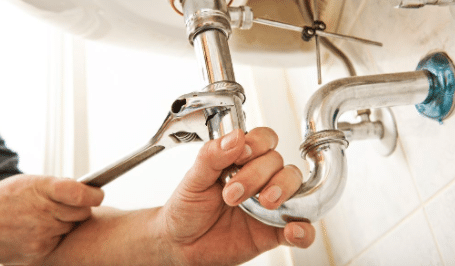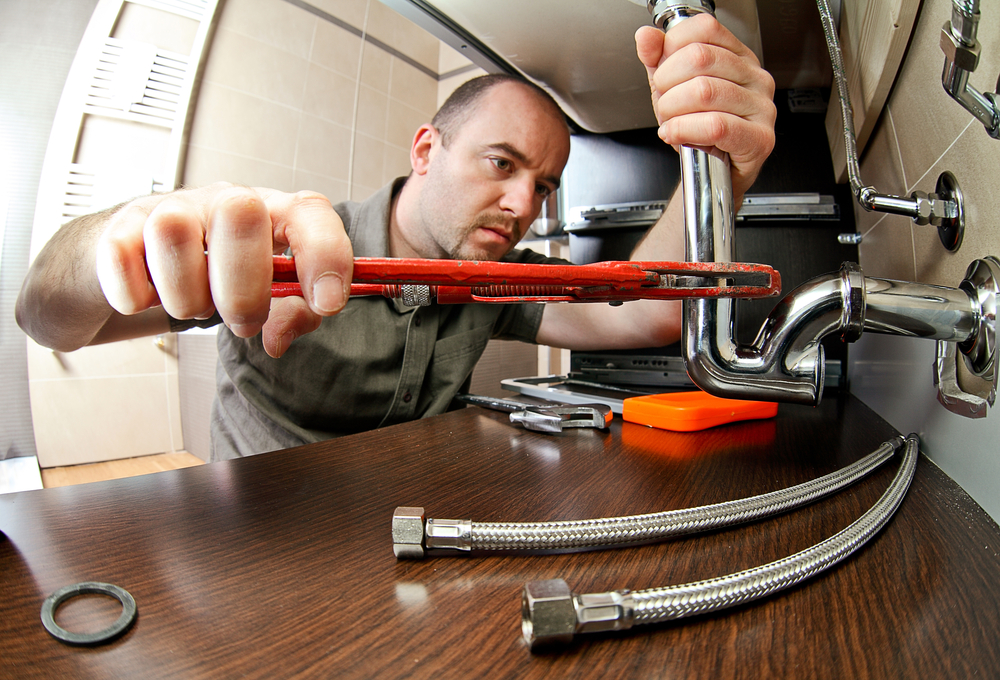Six Habits You’re Inadvertently Damaging Your Plumbing Appliances
Six Habits You’re Inadvertently Damaging Your Plumbing Appliances
Blog Article
On this page below you can find additional brilliant expertise concerning Ways to Make Your Pipes Last Longer.

The secret to long-term devices, unsurprisingly, appertains upkeep. There's no hard and fast guideline that can ensure your plumbing home appliances a lengthy wear, however you can stop unneeded damages as well as fixings by staying clear of negative plumbing behaviors.
You need to quit doing these 6 points else you'll keep calling your plumber over for minor faults.
Flushing everything
Yes, your toilet drainpipe causes the drains, but that does not suggest you must dispose just anything away. Lots of 'flushable' materials are in fact wonderful blockage starters, for example dental floss. Asides maintaining apparent non-flushable products like cords and plastics out of your bathroom, you need to also prevent flushing cotton swab, menstruation products, wipes, daipers and condoms down the bathroom drainpipe.
DIYing every little thing
With plumbing, a stitch in time really does save nine. You can stop a fullblown plumbing emergency by calling your plumber at the correct time.
You might have found out a couple of plumbing hacks from your papa, yet you should certainly recognize where to draw a line and also call a specialist. As an example, you might have the ability to deal with an obstruction on your own, however you shouldn't attempt to transform a pipeline. You can mismatch pipelines or overtighten a bolt, triggering even more injury as well as damage than you thought. Calling a plumber is a secure as well as inexpensive choice.
Utilizing too much drainpipe cleaner
Utilizing a drainpipe cleaner greater than once or twice a month is an indicator that something severe is going on within your pipelines. Now, rather than facing the major issue, you choose a quick fix; a fizzy drainpipe cleaner. Rightfully, a drainpipe cleaner will deal with the obstruction, however at what price?
The chemicals in a drain cleaner can accelerate the corrosion of your pipes. Include that to whatever underlying problem is triggering the obstruction and also you may have to a severe trouble on your hands.
If you experience too many blockages, call your emergency plumber rather than making use of a drainpipe cleaner.
Putting grease in the sink
We know correctly taking care of oil after a hearty meal is a discomfort. Yet simply putting it away can do long-term injury to your pipelines. "The fat and also oil can obstruct your drainpipe terribly sufficient to force you to call a plumber," discusses Dawson. "Plumbing works best when it's well cared for-- not abused with oil."
Not altering your dishwashing machine hose pipes
One easy means to make sure that you use your dishwasher for several years is to change the hose pipe at the very least when in five years. This additionally gets washing equipment pipes.
Over time, food fragments, soap and oil can form obstructions within your pipes. Changing them on time will protect against any type of presure build up that can damage the inner operations of your dishwashing machine or washing machine.
A reinforced steel entwined hose does a great task of extending your device's usage time.
No winter season precautions
Extreme climate condition are bad for your pipes, particularly if they're made from steel. You need to insulate your exposed pipes, and your water storage tank, even if you have a hot water heater. You must likewise switch off your yard pipe shutoff as well as any other outside water channels. These channels are outlets for cool; you pipelines can begin to freeze from outside if you do not.
How Hard Water Damages Your Plumbing and Appliances
Hard water is no stranger to most households across America. This silent invader affects 85% of homes in the United States every day, wreaking havoc on pipes, plumbing fixtures, and water-using appliances.
Should you become a victim of hard water, you must understand exactly what it is and how it affects your plumbing and appliances. This will help you determine the correct measures to put in place to fix or prevent any problems that may arise.
First off, what exactly is “hard” water?
In short, “hard water” is used to describe water that contains relatively high amounts of dissolved minerals, primarily calcium and magnesium, and a host of trace metals. When rainwater falls from the sky (usually in a pure form), it absorbs the hardness minerals from rocks and soil, which changes it from soft to hard water.
What about my plumbing and appliances?
Mineral deposits from hard water can cause buildup on tubs, shower, sinks, faucets. But that’s only a small scratch of the surface. Those minerals can gradually build up inside pipes, fixtures, water heaters, washing machines, and dishwashers. Once they accumulate in those areas, they can clog pipes and create major problems throughout your plumbing system, from reduced water flow to increased pressure on pipes and fixtures.
This limescale buildup might affect some appliances, causing them to operate less efficiently and wear down faster. And the result? Higher energy bills, more (costly) plumbing replacements and repairs, and damaged appliances.
Keep in mind that certain types of plumbing are more susceptible to clogging than others. Copper, PVC, and PEX pipes are more resistant to hard water buildup and corrosion, but they can still get clogged or completely blocked by scale deposits.
How do I know if my water is hard?
White limescale buildup on plumbing fixtures (or any of the other signs mentioned above) is usually a good sign that your water is hard. If you suspect that you have hard water, you can simply shake up a small amount of dish soap and water in a closed container. If the mixture doesn’t create a lot of suds, you probably have hard water.
The most precise method, however, is to test your water with a DIY test kit (sold online or at local home centers or hardware stores) or send a water sample from your tap to a local lab to be tested. Be sure that you understand the nature of the test, the water condition being measured, and the significance of the test results.
Another way to obtain an estimate of water hardness is to check your annual water quality report to see if your water provider has reported any instance(s) of water hardness in your water supply.
https://www.springwellwater.com/how-hard-water-damages-your-plumbing-and-appliances/

Do you enjoy reading up on Can Hard Water Ruin Your Appliances?? Make feedback directly below. We will be pleased to know your opinion about this review. We are looking forward that you come back again before long. Sharing is caring. Helping others is fun. Thank you so much for taking the time to read it.
At This Website Report this page